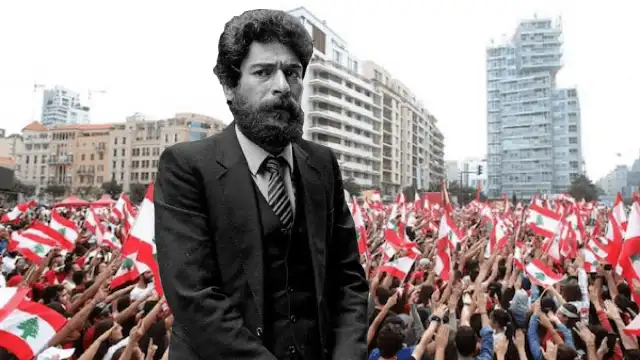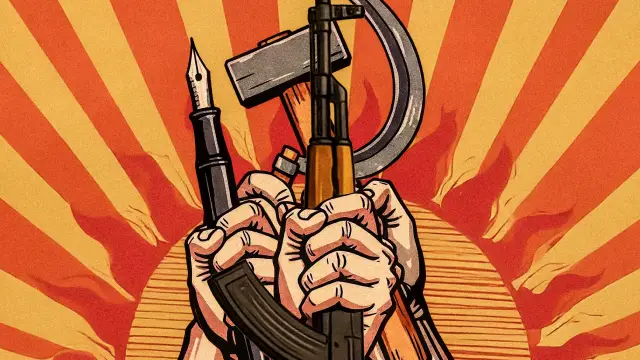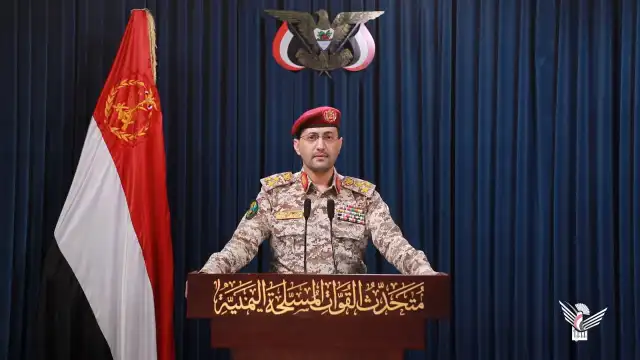The announcement arrived on a humid Thursday afternoon in July. After four decades of imprisonment, the French judicial system had finally decreed that Georges Abdallah would walk free. The court’s decision on July 17th 2025, carried a familiar condition—the 72-year-old Lebanese resistance fighter must leave France and never return.
For those who had campaigned tirelessly for his freedom, the news brought both relief and bitter reflection on justice delayed.
Mr Abdallah’s case represents Europe’s longest-running political imprisonment.
Since his arrest in 1984, successive French governments have found reasons to keep him behind bars, despite his eligibility for release since 1999.
The decision that finally saw Mr Abdallah released came after decades of external pressure from Washington and Tel Aviv, which had repeatedly torpedoed previous court approvals.
The pattern had become depressingly familiar.
In 2013, a court approved his release, only to see the decision overturned.
Another approval in November 2024 scheduled his freedom for December 6th, yet again, external intervention blocked the process.
Even as recently as June 2025, officials postponed the decision until Thursday’s announcement finally broke the cycle.
The extent of American involvement became clear in 2015 when documents revealed that Hillary Clinton had personally instructed the then-French foreign minister to maintain Abdallah’s imprisonment.
Mrs Clinton’s reasoning bordered on the absurd that the septuagenarian might “return to the battlefield”.
This American intervention demonstrated how deeply foreign powers had penetrated French judicial independence.
From village revolutionary to political prisoner
Georges Abdallah’s journey from a humble Lebanese village to a French prison cell reflects the broader struggle against Western intervention in the Middle East.
Born in Al-Qoubaiyat, a small town in northern Lebanon, a young Abdallah drew inspiration from the revolutionary broadcasts of the left-wing Palestinian resistance organisation, Popular Front for the Liberation of Palestine (PFLP).
These radio transmissions shaped his political consciousness and eventually led him to establish the Lebanese Armed Revolutionary Factions.
His arrest in 1984 centred on accusations of involvement in the deaths of an American military attaché and an Israeli diplomat in Paris during 1982.
The timing of his arrest was significant.
Israel had invaded Lebanon that year, occupying much of the country and devastating Beirut.
For Mr Abdallah, the trial represented nothing more than imperial theatre designed to obscure the collective West’s complicity in Lebanon’s destruction.
Throughout the proceedings, Mr Abdallah maintained a principled stance.
He neither confirmed nor denied the allegations, instead arguing that French authorities were themselves complicit in the occupation of Lebanon and Palestine.
His refusal to engage with what he considered an illegitimate process reflected his broader rejection of the West’s legal frameworks applied selectively to resistance movements.
From his prison cell, Mr Abdallah’s voice remained uncompromising. His words carried the weight of decades spent in confinement, yet his political vision remained sharp and undiminished.
“Let us be worthy of the epic of the torches of freedom, those invincible resistance heroes detained in Zionist prisons,” he declared.
“Naturally, the popular Palestinian masses and their fighting vanguards in captivity can count on your active solidarity. May a thousand solidarity initiatives flourish for the sake of Palestine and its glorious resistance,” Mr Abdallah said.
His commitment to the broader, left-wing, anti-imperialist struggle never wavered during his imprisonment.
“Yes to building a comprehensive Arab resistance front to confront normalisation in all forms,” he proclaimed.
“Down with imperialism and its agents, the Zionists, and Arab reactionaries,” he declared.
These statements revealed a man whose political clarity had only sharpened during four decades of incarceration.
Mr Abdallah refused all attempts at compromise or bargaining, maintaining that Palestinian resistance represented a legitimate struggle that required no justification to Western courts.
The resistance hails Abdallah becoming free
News that Mr Abdallah is now free sparked immediate celebration across resistance movements in Lebanon and Palestine.
Lebanese Hezbollah issued the first major statement on Thursday, contextualising the decision within broader frameworks of justice and Western hypocrisy.
“The forty-one years spent by the struggler Georges Abdallah in French dungeons constituted a firm condemnation of the state of law, justice, freedoms, and human rights protection, and proved the falsity of integrity and neutrality,” Hezbollah declared.
The organisation positioned Abdallah’s prolonged detention as evidence of French judicial subservience to foreign powers.
“The great injustice to which the honourable resistance fighter Georges Abdallah was subjected, and his continued detention despite the expiration of his legal sentence, will remain a stain of shame on the record of the French judicial and political system,” Hezbollah said.
Hezbollah’s statement directly challenged French claims to democratic legitimacy.
“This human and legal injustice reveals that the standards of democracy and the preservation of freedoms in France are subject to demand, which has taken it away from all logic of justice and political correctness to blind bias towards the whims and desires dictated by the interests of Washington and Tel Aviv and imposed on decision-makers there,” the Lebanese resistance organisation added.
The movement praised Mr Abdallah’s unwavering principles throughout his imprisonment.
“As Hezbollah blesses this heroic resistance fighter with this high honour, which he earned through his steadfastness, firmness, and adherence to his principles in defending the truth and supporting the oppressed, principles he never abandoned throughout his captivity, we see him today as a symbol for every prisoner, struggler, resistance fighter, and honourable person who raised the banner of pride and dignity in the face of tyrants and in defence of humanity, its rights, land, and principles,” the organisation further added.
Yet Hezbollah’s statement carried a warning.
Previous decisions had been reversed under external pressure, and the organisation called for vigilance.
“Today, as the French judiciary has acknowledged the right to release this great Arab and international resistance fighter and struggler, we hope that this decision will take its natural course towards immediate implementation, and that it will not be aborted under the weight of narrow French political calculations, or by succumbing again to Zionist and American pressures that previously prevented his release, falsely accusing him, and out of injustice and hatred for every resistance fighter and struggler in the world whom Georges Abdallah represents.”
The Palestinian Marxist-Leninist organisation that shaped Mr Abdallah’s political thoughts, the PFLP, followed with its own comprehensive statement, positioning the decision within broader liberation struggles.
“The Popular Front congratulates the internationalist fighter Georges Abdallah on his release and considers his steadfastness a victory for Palestine and the will of free people,” the left-wing resistance organisation claimed.
The PFLP emphasised Abdallah’s exceptional resilience.
“The Popular Front for the Liberation of Palestine congratulates the comrade and internationalist fighter Georges Abdallah on the decision to release him after more than four decades spent in French prisons, in a heroic and exceptional defiance of the most heinous tools of imperialist oppression, and warns against any imperialist and Zionist pressures or attempts to thwart this decision, as happened previously,” it said.
The organisation connected Mr Abdallah’s personal victory to Palestinian liberation.
“This decision represents a victory for the will of steadfastness and revolutionary resilience, and at the same time embodies a victory for the cause of Palestine, whose banner this great progressive leader carried with pride and competence,” the organisation underscored.
The PFLP condemned the broader pattern of political imprisonment.
“The continued detention of comrade Abdallah, despite a judicial decision for his release, constituted a stain on the forehead of French and American imperialism, and a blatant complicity with the Zionist entity. It reminds that this arrest and detention are purely political, and represented a blatant violation of the law and decisions of the French judiciary,” the PFLP further said.
The Front praised Mr Abdallah’s principled refusal to compromise.
“It commends his principled stance rejecting all attempts at blackmail and bargaining, and his insistence on the legitimacy of the Palestinian resistance, considering it a legitimate option with no compromise,” the organisation emphasised.
The statement positioned Mr Abdallah’s case within global anti-colonial struggles.
“The Front affirms that Abdallah’s detention throughout these years sends a clear message to the world about the necessity of confronting the forces of colonialism and global arrogance, exposing Zionist and imperialist crimes, and rejecting subservience and submission,” the PFLP highlighted.
The PFLP called for Mr Abdallah’s example to inspire broader resistance, especially the left.
“Furthermore, his legendary steadfastness represents an inspiring model for the Arab and international revolutionary left, and should mark the beginning of a true awakening in the battle for national and social liberation, and for a free Palestine from the river to the sea,” the PFLP stressed.
The communist organisation acknowledged the international solidarity campaign that sustained pressure, leading to Mr Abdallah’s freedom.
“The Front highly appreciates the efforts of all free people in the world, foremost among them the International Campaign for Solidarity with Georges Abdallah, and all parties, groups, and progressive internationalist activists, who did not hesitate for a single moment to continue pressure and struggle for his release, believing that defending Abdallah is defending justice and the Palestinian cause, which Abdallah made his primary compass of struggle,” it further added.
The PFLP highlighted Mr Abdallah’s continued solidarity with other political prisoners during his own incarceration.
“The Front also values comrade Abdallah’s stances inside his prison, and his steadfast support for Palestinian prisoners in their struggles, and his engaging in symbolic hunger strikes in their support, foremost among them the imprisoned leader comrade Ahmad Sa’adat, secretary-general of the Popular Front, emphasising that the prisoners’ battle is one battle against oppression and colonialism, and that international solidarity with the Palestinian people’s struggle is not limited by bars or confined by prisons,” the organisation mentioned.
The statement concluded with calls for broader prisoner solidarity. “The Front calls for escalating the struggle for the release of all prisoners and political detainees in Zionist and Western prisons, and sees this battle as an integral part of the international struggle against injustice and colonialism,” it appealed.
The PFLP’s final words captured the broader significance of the moment: “Glory to the internationalist fighter Georges Abdallah… Freedom for Palestinian prisoners in Zionist occupation prisons and Western prisons, and victory for Palestine and the resistance.”
As news of the decision that saw Abdallah released spread across resistance networks, it marked not just personal vindication but a broader challenge to the West’s claims of judicial independence.
After four decades, the man from Al-Qoubaiyat had outlasted his captors’ political calculations, emerging as a symbol of principled resistance to imperial power.
Join our channels on Telegram and WhatsApp to receive geopolitical updates, videos and more.







